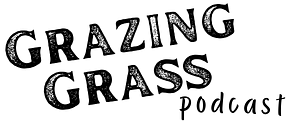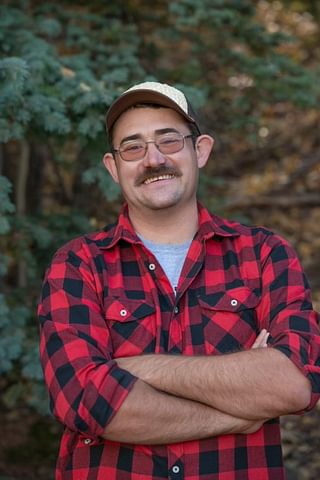I am a full-time firefighter and the owner operator off the Vogl Homestead Farm, a regenerative farm and ranch that raises hair sheep for direct-to-consumer meat sales and as a property management/prescribed grazing service for weed mitigation, mowing, and fire mitigation. We also use them as a land improvement crew to help restore overgrown Ponderosa Forests in our area. We also have a small market garden that uses permaculture practices to grow multiple perennial crops such as rhubarb, irises, native berry bushes, and some ling season annuals. I started ranching as a kid when my family had a small meat herd of Red Angus, but watched the ranch fail when the 2000 drought hit the West and the ranch wasn't resilient enough to handle it. I became a firefighter, met my wife Karissa, and had 2 boys while we bought our current home on 7 acres. I slowly got back into farming through homesteading and doing some conventional gardening and chicken raising when I started learning about regenerative agriculture. After several years of learning and determining I was ready to make the leap, we started raising chickens on pasture in 2016 and then got sheep in 2017 (on St Patricks Day ironically), getting a flock of 20 White Dorper/St Criox crosses (12 ewes, 1 ram, 7 lambs and more on the way). From there we learned to cut our teeth on raising them on a nearby property we leased but quickly realized we didn't have enough land. So over the years I began leasing other properties from others nearby, all small 2-4 acre pastures. This allowed me to learn the versatility of using electric fencing to rotationally graze them in our arid environment. After a couple years and expanding the flock to about 35 head, we started leasing many properties with heavy, overgrown Ponderosa Forest. Using my knowledge from both firefighting and agriculture, I really started to understand just how overgrown and unhealthy our local forests are. So using the sheep mixed with forest thinning, I started seeing a return of under story flora, namely grasses, forbs, and fruiting bushes (like chokecherry and wax currants). This helped me understand how much importance the animal impact of large herds of migrating herbivores like mule deer and elk would have had on this traditionally forest/high prairie environment and how detrimental the removal of that was over the past 150 years. So I use this knowledge to help acquire new leases to expand out operation while making a healthier ecosystem locally. This has also allowed us to start looking at new farm enterprises, such as moving and transplanting small pine trees from overgrown areas to clients looking for planted wind breaks, and the possibility for selective lumber production from trees that needed to be thinned (we are about to set up our bandsaw mill this spring). We can then use the waste products like woodchips to spread on the pasture in tandem with compost we make on farm (local horse properties regularly bring it to us or pay us to haul it for them). We will spread 1/2 - 1" of compost, let it settle for a couple weeks, and then spread about 1" of mulch over it. While this is quite labor intensive, we see a dramatic improvement in forage production and serves as a major jump start to our carbon cycling in the soil. This is largely due to our arid environment only having about 15-18" of annual precipitation and we are now able to effectively capture and store it instead of it running off or evaporating. We typically see a 3x or higher increase in the forage grown within a growing season after doing this. And while we haven't tested it, its richer in color and the sheep always like to try grazing those areas first which tells me its higher in nutritional value as well. We are starting to test and dabble in some other practices, namely growing more silvopasture, which is done by building off the existing forest restoration efforts and introducing species of trees and bushes that will improve diversity, create more forage our sheep can eat, and potential other crops we can harvest years down the road if we choose to.
Related Episodes
e117. Fighting Fires and Grazing Sheep with William Vogl
Join us on this episode of the Grazing Grass Podcast as we welcome William Vogl from Vogl Homestead. Listen in as William shares his incredible journey in regenerative grazing, discussing his experiences in grass-based livestock production and the unique challenges of farming at high elevation with...


